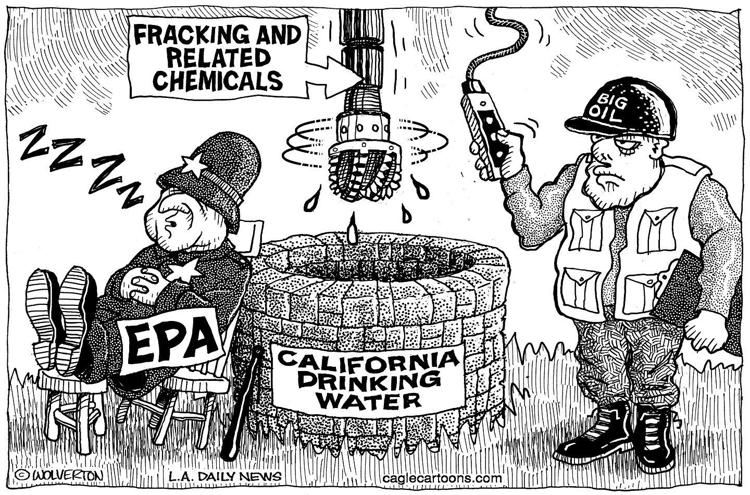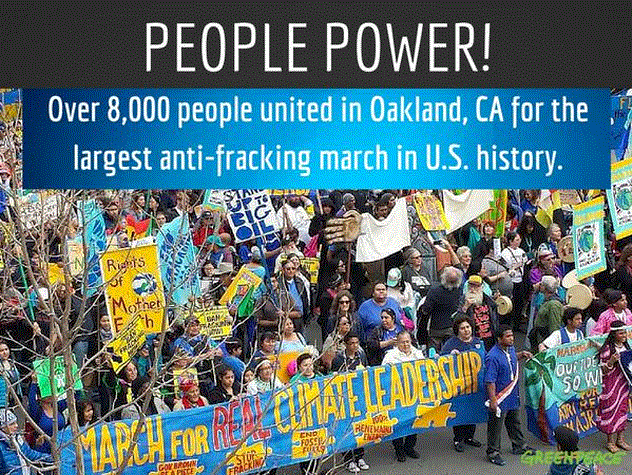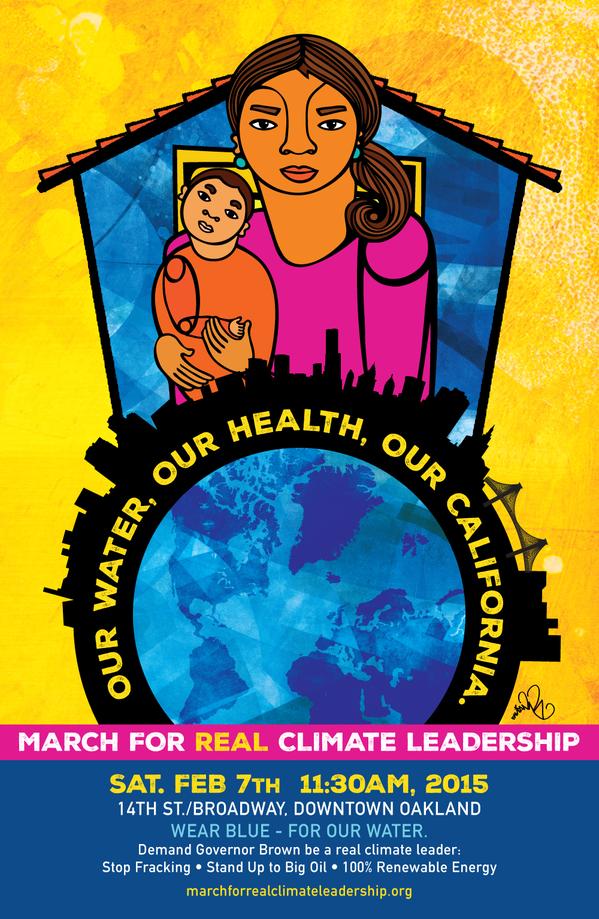
This is welcome news. I applaud the Geologic Energy Management Division’s courage and integrity to do what they set out to do no matter how nasty the frac’ers became in response.
How many aquifers did frac’ers contaminate; how many houses and businesses did they blow up via frac’d explosive gases migrating into aquifers and buildings? How many people injured or killed?
To my heartbreak, California’s frac ban (so far) excludes hazardous steam injections which killed Robert David Taylor in a most cruel unforgivable way imaginable (and which are contaminating groundwater in Alberta).

Robert David Taylor

Cartoon by C Abel. I still cringe when I remember the stern commands from my ex lead lawyer, Murray Klippenstein, that I not distribute, share or ever post this cartoon. Cruel quitting lying bullying coward. I love cartoons and am immensely honoured to be in one.
![]()
California formalizes plan to end fracking by EHN Curators, February 19, 2024, Environmental Health News
California’s oil and gas regulators have officially unveiled a proposal to phase out fracking in the state.
In short:
- The California Geologic Energy Management Division announced plans to stop issuing permits for well stimulation treatments like fracking to protect natural resources and public health.
- Environmental groups applaud the move, highlighting fracking’s negative impacts on climate, water, and seismic stability, although concerns remain about other extraction methods.
- The proposal may affect the economy of Kern County, where most of California’s fracking occurs, but it is seen as a victory for public health and environmental protection.
Key quote:
“Fracking is a very dangerous, climate-change-accelerating, water-polluting, earthquake-causing process. … We’re really happy that California is finally taking the formal steps to officially ban some fracking in the state.”
— Chirag Bhakta, California director, Food & Water Watch
Why this matters:
This initiative underscores California’s commitment to transitioning away from fossil fuels and prioritizing sustainable energy sources, with potential implications for public health and climate policy nationwide.
California Releases Formal Proposal to End Fracking in the State by Laura Klivans, Feb 14, 2024, KQED
California oil and gas regulators have formally released their plan to phase out fracking three years after essentially halting new permits for the practice.
The California Geologic Energy Management Division (CalGEM) wrote that they would not approve (PDF) applications for permits for well stimulation treatments like fracking to “prevent damage to life, health, property, and natural resources (PDF)” in addition to protecting public health and mitigating greenhouse gas emissions.
“I’ve made it clear I don’t see a role for fracking in that future and, similarly, believe that California needs to move beyond oil,” Gov. Gavin Newsom said in a statement in 2021 when he initiated regulatory action to phase out new fracking permits.
… Oil companies say fracking has been done safely for years under state regulation and that a ban should come from the Legislature, not a state agency.
“These things truly exceed the limits of CalGEM’s legal authority,” said Kevin Slagle, vice president of strategy and communications at the Western States Petroleum Association.
Slagle said the policy would include trade-offs for the state’s energy supplies. “They have been rapidly shrinking under this administration. And when you shrink supplies, that typically means higher costs for consumers.”
….fracking pollutes groundwater and the air.
“Fracking is a very dangerous, climate-change-accelerating, water-polluting, earthquake-causing process,” said Chirag Bhakta, California director at the environmental group Food & Water Watch.
“We’re really happy that California is finally taking the formal steps to officially ban some fracking in the state,” Bhakta said. But he said the proposed regulations do not address other widely-used well-stimulation methods such as steam injection fracking.
This move will likely rekindle a longstanding debate over whether to continue producing oil in Kern County, where most of the state’s fracking occurs. State analysis (PDF) said the new plan would hurt the county’s economy and significantly lower their property tax revenue.
But Maricruz Ramirez, a community organizer with the nonprofit Center on Race, Poverty and the Environment, who is based in Kern County, applauded the move.
“Fracking has long posed a threat to public health, clean air, and water. Banning it in California prioritizes communities over the oil industry, especially in Kern County,” Ramirez said.
The state has not approved fracking permits in the last three years, and oil and gas representatives say the state agency has overstepped its authority and that a ban on fracking should be in the hands of the Legislature instead.
The public can comment on the proposal until 11:50 p.m. on March 27. Comments can be submitted by email to email hidden; JavaScript is required or by mail to the Department of Conservation, 715 P Street, MS 19-07 Sacramento, CA 95814, ATTN: Well Stimulation Permitting Phase-Out.
A public hearing will be held at 5:30 p.m. on March 26. You can register here or join by telephone:
404-443-6397 (English), 877-336-1831 (English), Conf Code: 148676
888-455-1820 (Español), Código: 3167375
Years after a Newsom order, California is finally set to ban oil and gas fracking by Ari Plachta, Feb 13, 2024, The Sacramento Bee
Nearly three years after Gov. Gavin Newsom directed it, California’s oil and gas industry regulator kickstarted a process to outright ban hydraulic fracturing, the fossil fuel extraction method known as ‘fracking.’
Fracking permits have not been issued in the state since 2021, but environmentalists celebrated the move as a win in the fight against climate change. Oil industry groups called it yet another example of regulatory overreach and argued it could lead to higher oil prices.![]() So what? Water is more important than money. Without water, there is no economy. Period.
So what? Water is more important than money. Without water, there is no economy. Period.![]()
Late last week, the Geologic Energy Management Division (CalGEM) said in a draft rule that it will officially cease to approve hydraulic fracturing permits on California oil and gas wells.
“This regulatory change will improve the Department’s Geologic Energy Management Division’s ability to prevent damage to life, health, property, and natural resources… including the mitigation and reduction of greenhouse gas emissions,” said Jacob Roper, a spokesperson for the Department of Conservation.
… As the practice exploded in the mid-2000s, research gave fracking a reputation for pollution and public health dangers. Fracking not only is water intensive, it releases potent greenhouse gases such as methane and benzyne and can contaminate groundwater basins with chemical additives.
… CalGem estimated that the new ban, which it expects to be approved by the end of 2024, would have moderate impact on oil production. The agency said the rule would lead to $190 million in costs incurred by oil and gas operators and cut production by 4%.
California’s oil production industry has been on the decline since the 1980s, but that doesn’t mean it’s going down without a fight. Last year Chevron and the Western States Petroleum Association collectively spent more than $18 million on lobbying in Sacramento.
Catherine Reheis-Boyd, president and CEO of WSPA, said CalGEM had already instituted a de-facto ban on fracking but that this rule would exceed the limit of the agency’s regulatory authority and overlooks “decades of safe operations.”
“This decision is another misplaced political assault on production and energy supplies by the Newsom administration,” she said. “These types of policies are devastating to our state’s energy supplies, which are rapidly shrinking under the Newsom administration, and will likely lead to even higher energy costs for California consumers.”
Three years ago, after Newsom directed CalGEM to cease issuing fracking permits and set a 2024 deadline to legally end the practice, the state denied a string of at least 100 fracking permit applications.
Several oil companies filed suit, claiming the agency could not reject permits without a formal ban.
Now, after three years of quiet on the issue from the agency, this new effort could put those lawsuits to bed, said Hollin Kretzmann, an attorney at the Center for Biological Diversity’s Climate Law Institute.
“Symbolically, it means California is moving in the right direction. A ban on fracking is a simple no brainer,” he said. “Californians have wanted to end fracking for years, and hopefully this rule is an indication that they’re getting serious on the rest of the fossil fuel industry.”
If CalGEM was serious about addressing the climate crisis, Kretzmann said, it could use its authority to put a new oil well setback restriction into regulation. California passed a restriction 2022 but that law has been suspended pending a referendum vote in 2024.
CalGEM said it will hold a virtual public hearing on the fracking rule on Tuesday, March 26 ahead of the public comment deadline.

Refer also to:

2021: California: Oil industry lobby group demands groundwater protections stripped
2016: California: Carson introduces ban on fracking, acidizing of oil wells, and similar operations

Encana/Ovintiv dumping waste on foodlands in my community, Rosebud, Alberta, Canada


2014: Federally commissioned report, California Council on Science and Technology: Fracking is at shallower depths than previously realized, “It turns out that they’re fracking right around the water table” ![]() Ya, in Canada too!
Ya, in Canada too!![]()
2012: AEA: Support to the identification of potential risks for the environment and human health arising from hydrocarbons operations involving hydraulic fracturing in Europe![]() This post is in my view, the most important of the 7,539 posts to date that I’ve completed and published (I have 585 draft posts not yet published).
This post is in my view, the most important of the 7,539 posts to date that I’ve completed and published (I have 585 draft posts not yet published).![]()
A proportion (25% to 100%) of the water used in hydraulic fracturing is not recovered, and consequently this water is lost permanently to re-use, which differs from some other water uses in which water can be recovered and processed for re-use.
